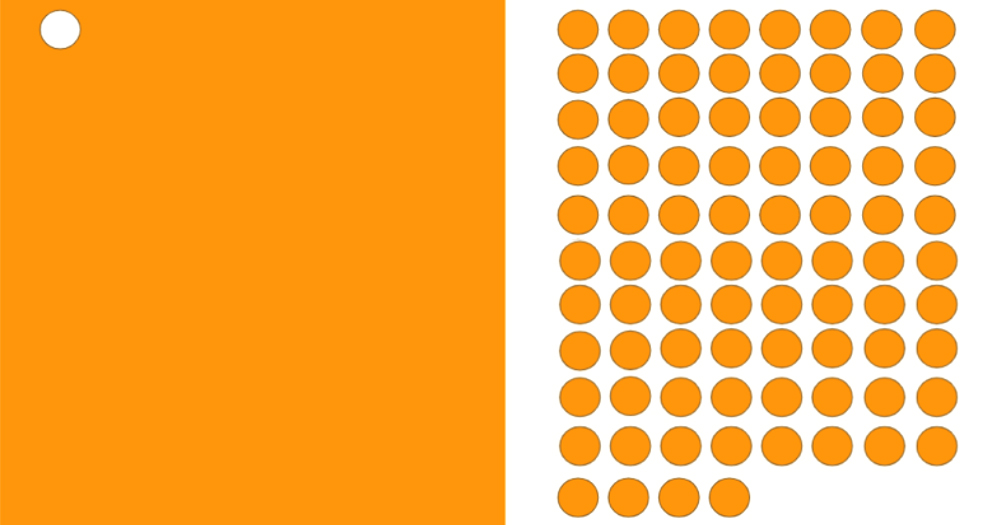Outbreaks Inevitable as Childhood Vaccination Rates Decrease

Sarah Javaid and Giovanna Buttazzoni
Master's Students in Epidemiology
A vaccine can mean the difference between life and death, especially for children. Any decrease in vaccination coverage in a community can lead to an increase in infant death rates due to vaccine-preventable diseases.1
Allowing vaccination programs to be discontinued could prove disastrous.
COVID-19 has posed unique challenges to global vaccination programs. The World Health Organization has warned that dramatic drops in vaccination levels globally due to COVID-19 mean put vaccination programs in low-income countries at risk of suspension or cancellation.2
Children around the world have gone unvaccinated for a variety of reasons during the COVID-19 pandemic. Whether that reason is fear of contracting the virus at a doctor’s office or disobeying stay-at-home orders, the consequences remain the same.3 Allowing vaccination programs to be discontinued could prove disastrous, with inevitable disease outbreaks now and a threat of additional disease burden for generations to come.
With fewer children being vaccinated, we will see outbreaks of diseases that are on the verge of eradication.
The global reductions in childhood vaccinations, especially in low- and middle-income countries, during the pandemic include vaccinations for measles, polio, meningitis, tetanus, and many others.3 A study in Sindh, Pakistan, found a 52.5% decline in child vaccinations during pandemic lockdowns, with the greatest drop in rural areas.4 In Sierra Leone, polio vaccination dropped 52.7% and measles vaccination 83.7%.5 England, a higher-income nation, saw a 20% decrease in MMR vaccines in the first three weeks of lockdown alone.1
With fewer children being vaccinated, we will see outbreaks of diseases that are on the verge of eradication. Pakistan, one of only three nations on the planet where polio still circulates, has worked hard to vaccinate children against this disabling disease. Due to COVID-19 lockdown and reduced vaccination rates, the country is at high risk for a devastating polio outbreak.4
It is a global responsibility to support these programs and ensure that childhood vaccination programs continue.
Lower income countries experience higher death rates from vaccine-preventable diseases, adding further strain to health care systems currently fighting COVID-19.6 Health care systems are trying to prepare for these outbreaks even as they struggle with COVID patients. But routine vaccinations could prevent unnecessarily overwhelming these systems and should be promoted broadly as a primary defense against infectious disease cases inundating already stressed health systems.6
The world’s battle with the new coronavirus, while far from over, could be made exponentially worse if outbreaks of vaccine-preventable illnesses are not addressed quickly and efficiently.
A recent simulation study demonstrates the projected effect on a population’s health when vaccination programs are continued or suspended/cancelled. The projection is that, for every one child that would die from COVID-19 due to exposure during the clinical vaccination process, 84 more would die from vaccine-preventable illnesses (figure 1).7
To prevent increasing death rates among children and other tremendously negative results from drops in childhood vaccinations, immunization programs must not be suspended during the era of COVID-19. Instead, these programs require immediate and urgent attention. Policymakers in every nation and community should be pushed to restore vaccination rates to pre-COVID levels. It is a global responsibility—including the WHO, UNICEF, the Expanded Programme on Immunization, national governments, national and local health agencies, and the broader public health community—to support these programs and ensure that childhood vaccination programs continue.

From the study “Routine Childhood Immunisation during the COVID-19 Pandemic in Africa: A Benefit–Risk Analysis of Health Benefits versus Excess Risk of SARS-CoV-2 Infection.” On the left, how many children will die from COVID-19 due to vaccination programs continuing versus, on the right, how many children will die from vaccine-preventable diseases due to vaccination programs being suspended or cancelled.
Notes
- Saxena, S., Skirrow, H., and Bedford, H. “Routine Vaccination during COVID-19 Pandemic Response.” British Medical Journal 2020;369:m2392.
- WHO and UNICEF Warn of a Decline in Vaccinations during COVID-19. July 15, 2020.
- Dinleyici, Borrow, Safadi, van Damme, and Munoz. “Vaccines and Routine Immunization Strategies during the COVID-19 Pandemic.” Human Vaccines and Immunotherapeutics (Aug 26, 2020):1-8.
- Chandir, Siddiqi, Mehmood, Setayesh, et al. “Impact of COVID-19 Pandemic Response on Uptake of Routine Immunizations in Sindh, Pakistan: An Analysis of Provincial Electronic Immunization Registry Data.” Vaccine 38/45 (October 21, 2020):7146-7155.
- Buonsenso, Cinicola, Kallon, and Iodice. “Child Healthcare and Immunizations in Sub-Saharan Africa during the COVID-19 Pandemic.” Frontiers in Pediatrics 8 (2020):517.
- Fulker, James. “COVID-19: Massive Impact on Lower-Income Countries Threatens More Disease Outbreaks.” Gavi, the Vaccine Alliance (2020).
- Abbas, Procter, van Zandvoort, et al. “Routine Childhood Immunisation during the COVID-19 Pandemic in Africa: A Benefit–Risk Analysis of Health Benefits versus Excess Risk of SARS-CoV-2 Infection.” Lancet Global Health 8/10 (October 2020):e1264-e1272.
About the Authors
 Giovanna Buttazzoni earned a bachelor’s degree in Biopsychology, Cognition, and Neuroscience
and is a master’s student in Epidemiology at the University of Michigan School of
Public Health. She works with Dr. Nancy Fleischer and Dr. Jana Hirschtick on the Michigan COVID-19 Recovery Surveillance Study and plans to begin medical school to use her clinical and research degrees to pursue
preventative maternal and child health care in global settings.
Giovanna Buttazzoni earned a bachelor’s degree in Biopsychology, Cognition, and Neuroscience
and is a master’s student in Epidemiology at the University of Michigan School of
Public Health. She works with Dr. Nancy Fleischer and Dr. Jana Hirschtick on the Michigan COVID-19 Recovery Surveillance Study and plans to begin medical school to use her clinical and research degrees to pursue
preventative maternal and child health care in global settings.
 Sarah Javaid is a master’s student in Epidemiology at the University of Michigan School
of Public Health. She works as a research assistant at the Institute of Social Research.
Her areas of interest include maternal and child health and public health policy.
Sarah Javaid is a master’s student in Epidemiology at the University of Michigan School
of Public Health. She works as a research assistant at the Institute of Social Research.
Her areas of interest include maternal and child health and public health policy.
- Interested in public health? Learn more here.
- Read more articles about vaccines.
- Support research and engaged learning at the School of Public Health.
